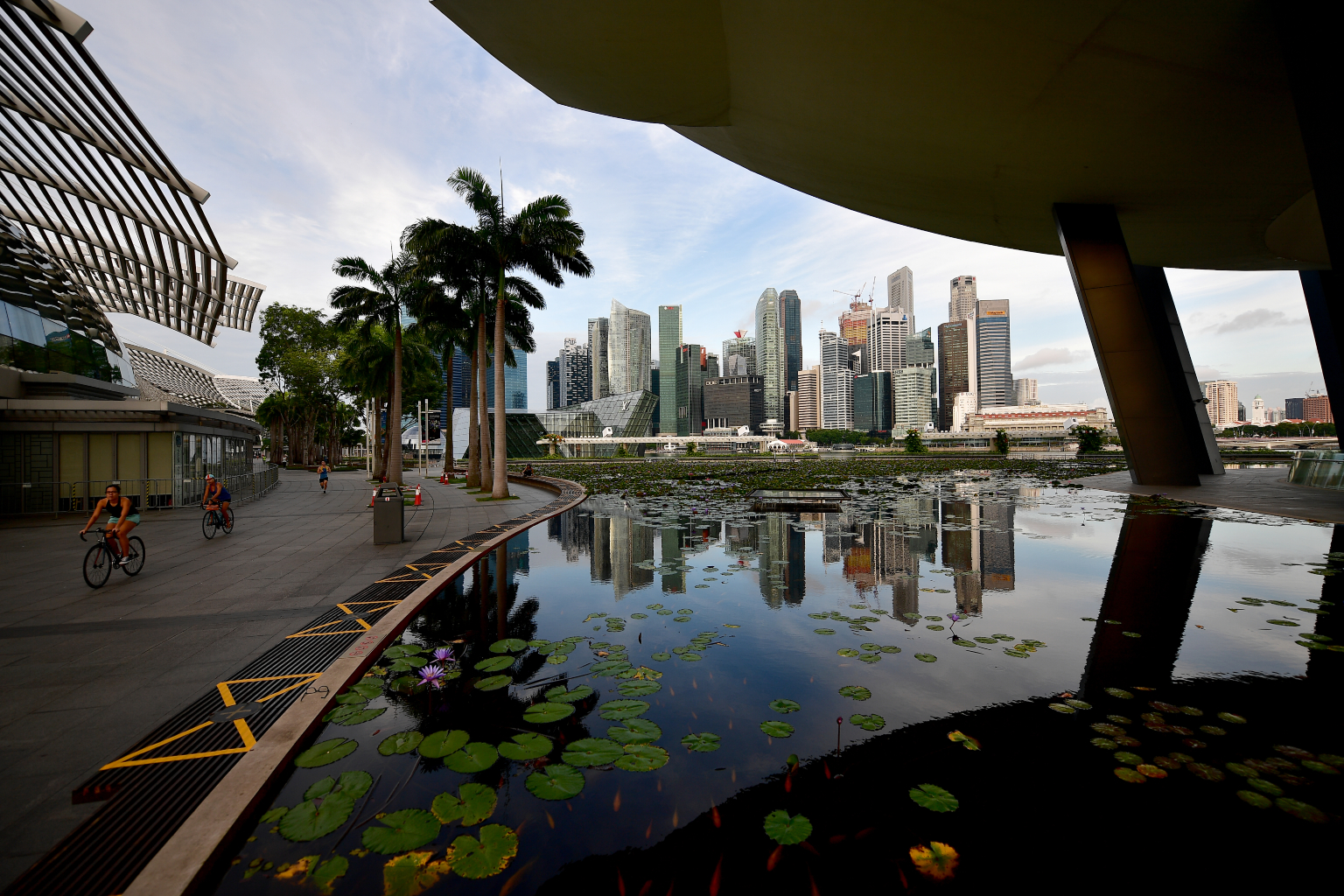Global institutions and systems need an update even as multilateralism has worked well: Ng Eng Hen
Sign up now: Get ST's newsletters delivered to your inbox

The threat to multilateralism and cooperation is the quintessential one because it affects the fundamental underpinnings of stability of the current world order.
ST PHOTO: LIM YAOHUI
Follow topic:
SINGAPORE - Multilateralism and international cooperation has served the world well since World War II, but global organisations and systems need to be updated for today's world, said Defence Minister Ng Eng Hen on Friday (Nov 13).
While events such as the Covid-19 pandemic and the shift in American foreign policy in the last decade have weakened the pillars of this framework, the baby must not be thrown out with the bath water when adapting to new circumstances, he said.
Inadequacies of the current framework must be recognised, and more equitable and effective application of the international rule of law established, he added.
Dr Ng was speaking in an hour-long virtual dialogue organised by the Germany-based think-tank Konrad Adenauer Foundation and the S. Rajaratnam School of International Studies (RSIS).
The session, titled The Indo-Pacific: Geostrategic Challenges and Opportunities for Germany and Singapore, was attended by his counterpart, German Defence Minister Annegret Kramp-Karrenbauer.
Of the many challenges facing the generation today, Dr Ng said the threat to multilateralism and cooperation is the quintessential one because it affects the fundamental underpinnings of stability of the current world order.
The post-WWII construct, with multilateralism as its core tenet, has resulted in concrete progress, development and peace for that generation, he said, with Germany and Japan, as well as China and Asean, among those that benefited.
But the Covid-19 pandemic was but among the global events that have shaken and weakened the pillars of this framework in the last decade or so, with US foreign policy shifting considerably in that period, to what it viewed as unfair outcomes that favoured some countries at the expense of others, including itself, said Dr Ng.
The effects of this foreign policy were sharper under the Trump than the Obama administration, he said. But the belief is deep-seated and entrenched in American politics for decades to come, and likely to persist under a Biden administration.
China's rise also presents a challenge to the existing framework, which is built on democratic and liberal ideas, he said.
Managing tensions related to jihadi terrorism and migration, stemming from the fall-out from countries such as Syria, Lebanon and Iraq, has strained the existing social fabric of communities in Europe, he added.
"The sum effect of these deep currents... requires a rethinking, if not a reworking of our multilateralism and global institutions and systems," said Dr Ng.
"But we must not in the course of adapting to new circumstances throw out the baby with the bathwater. Globalisation 1.0 was not perfect but it did serve our needs."
He added: "A regression to parochial nativist and discriminatory policies by any country or countries will result again in blocs and misaligned interests which led to the previous two world wars.
"That path, if taken, will impoverish us all once again."
Instead, multilateral organisations must establish more robust global norms, and more equitable and effective application of the international rule of law to address inadequacies of the current framework, he said.
Mrs Kramp-Karrenbauer said she was grateful to Dr Ng for highlighting how the multilateral order came about, how important it is, as well as the challenges to it when threats are becoming more global.
"At the same time we see that there is a certain trend, a certain development that shows more regionalisation or a need to find more regional answers. This will not work," she said.
A challenge to humanity like climate change can only be tackled in a global approach, when all the nations are on board, she said. Terrorism "attacks all of us", from people in Paris, to Nice, Vienna and Kabul, she added.
"That is why we who share values and interests need to act together and stand side-by-side."
She said Germany had plans to send a ship to participate in exercises and training in the Indo-Pacific region with the French, but this did not happen due to the Covid-19 pandemic. She added that this is now planned for next year.
In her speech, she also highlighted the German government's recently published policy guidelines for the Indo-Pacific region, which Germany sees as an internationally active trading nation and a proponent of a rules-based international order.
Asked on Singapore's view of the outcome of the recent US presidential elections, Dr Ng said that Singapore has worked with both Democratic and Republican administrations equally well, in being able to forge common cause and find common ground.
The essence lies in the core principles, such as adhering to the rule of law, having mutual benefits for both small and large states, as well as peaceful settlement of disputes, he said.
"So I think even under the Biden administration, it will continue, and I think we can find space."
He expressed optimism that a clash between the US and China is not inevitable.
"Is this a case of an unstoppable force meeting an immovable object? I don't think so. China has as much to lose as it has to gain from a breaking down of multilateral systems, as does the US."
The diplomatic and security challenge is to find common ground and causes, he said. "I think as leaders, that to us is the responsibility we have to undertake."

